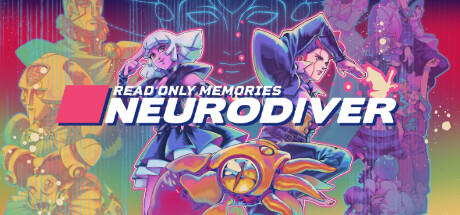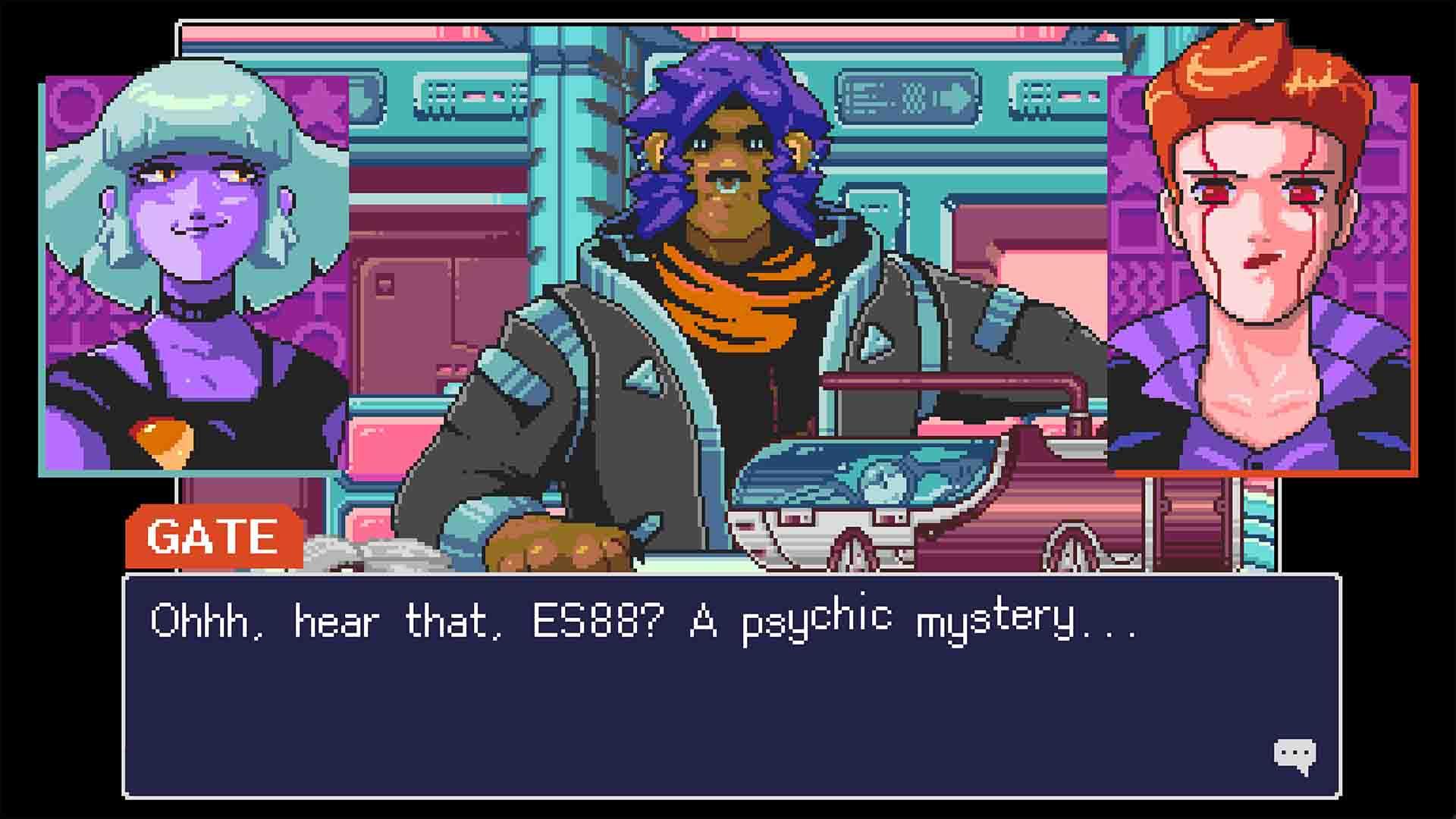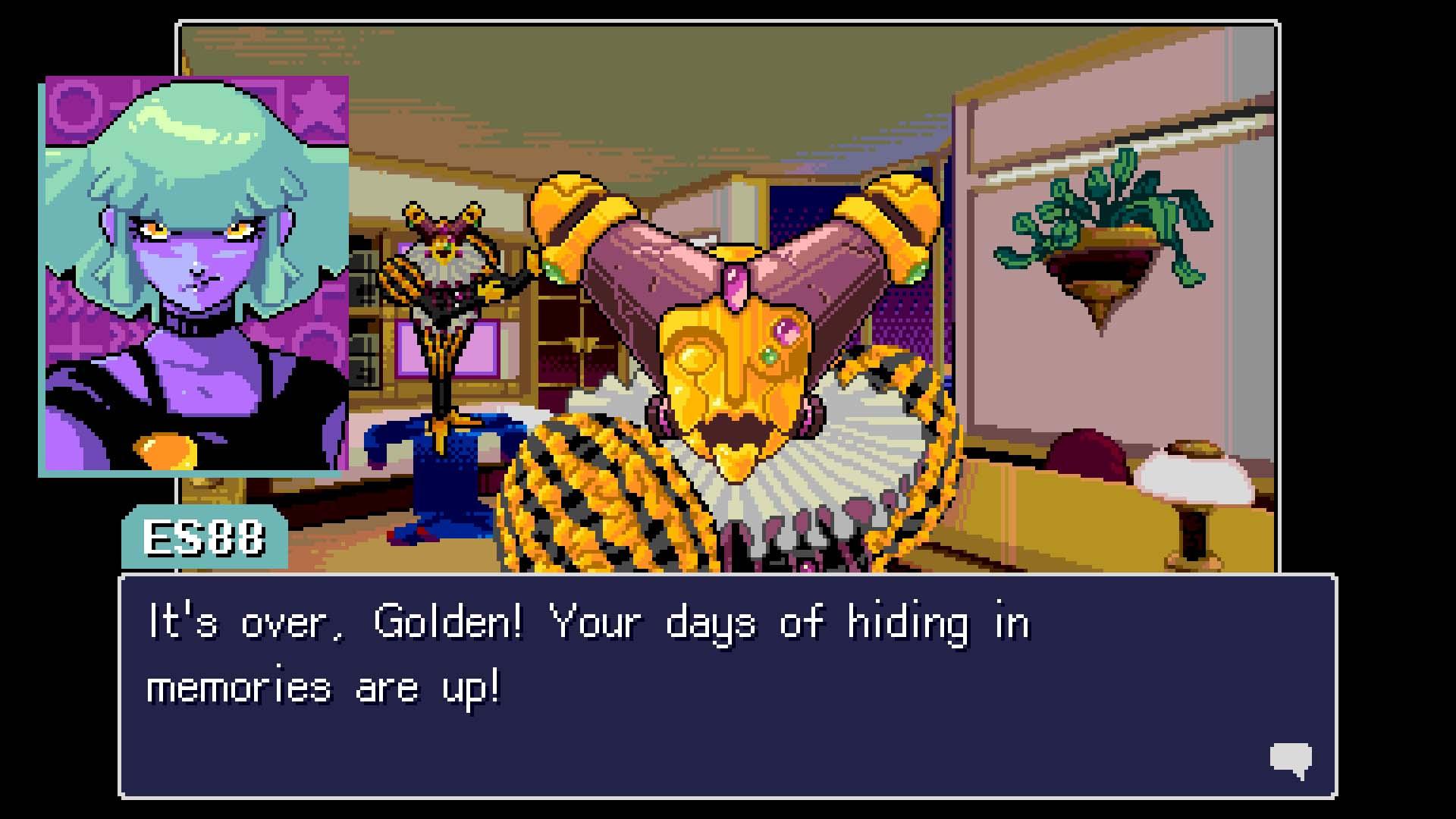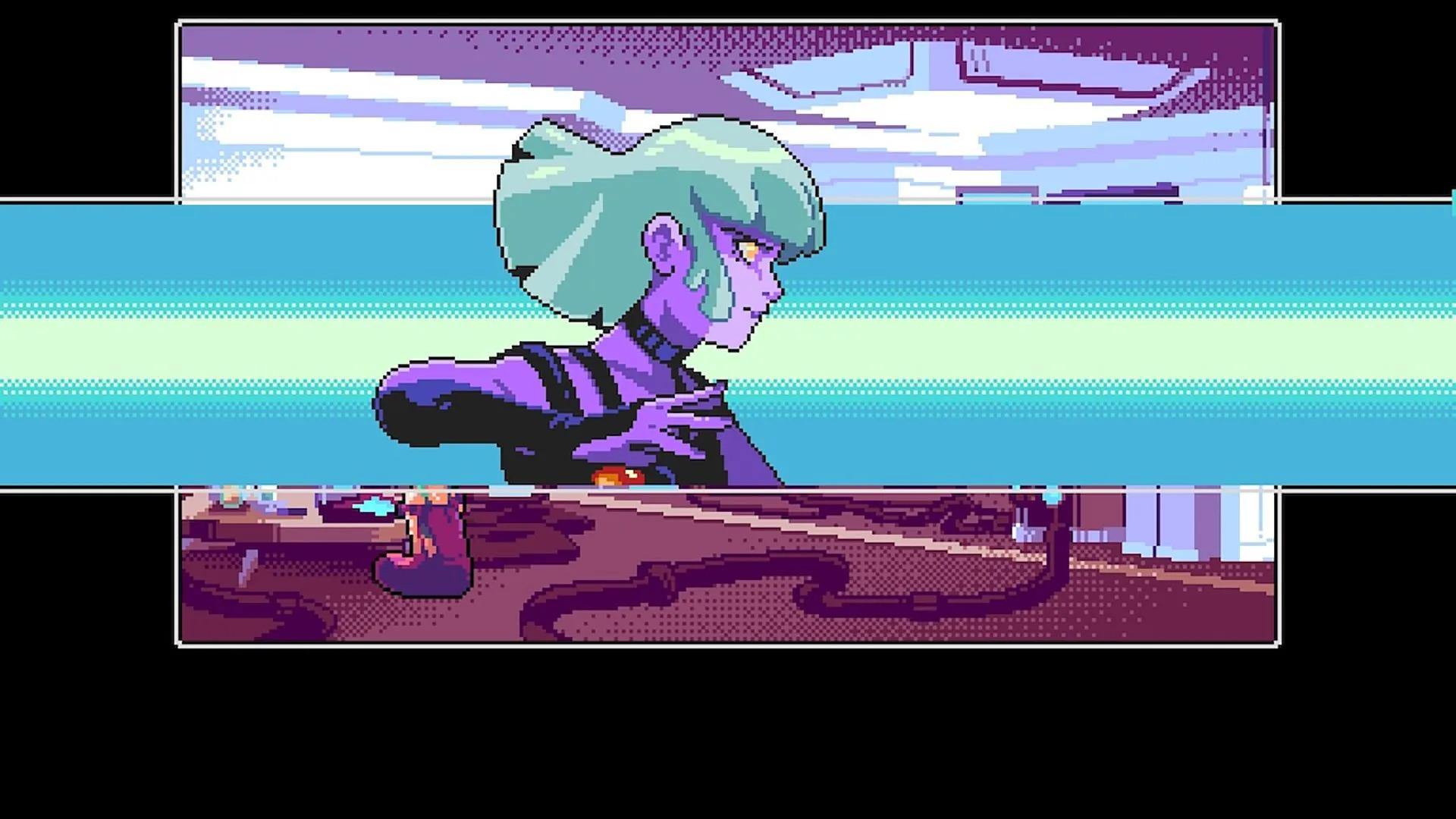Existing User Log In
New User Registration
Register for a free account to gain full access to the VGChartz Network and join our thriving community.





America - Front


America - Back

MidBoss
Visual Novel
 (Add Date)
(Add Date) (Add Date)
(Add Date) (Add Date)
(Add Date)
| Owners: | 0 |
| Favorite: | 0 |
| Tracked: | 0 |
| Wishlist: | 0 |
| Now Playing: | 0 |
Reviewer's Note: While not giving away too much, I do need to touch on SOME SPOILERS in order to make certain criticisms. Read on at your own risk.
Roughly a decade after its release, 2064: Read Only Memories' announcement and eventual arrival feels like one of those early precursors of cyberpunk titles pushing past the bleak pessimism typical within the genre. The noir black-white duality so wonderfully illustrated within Blade Runner and certain successors was tossed aside for bouncier colors and a sunnier disposition to any source material; even though the explored subject matter may peer into darker aspects of humanity, it's now often framed as something to collectively thwart. In keeping with this general trend, California-based developer Midboss shepherds this long-awaited "psy-fi" sequel with a similar attitude in mind. It's just a shame that the game proper doesn't earn such optimism.
Six years after the original's story, a young psychic detective (known as an "esper") named ES88 is working for the powerful MINERVA Corporation, which specializes in information science, neurotechnology, and extrasensory phenomena. Pairing with the first successfully bioengineered esper, the titular squid-like creature called a "neurodiver," ES88 is able to venture deep into other people’s memories. After years of training, her first major task is tracking down an enigmatic psychic entity known as "The Golden Butterfly" who's somehow embedding… himself/herself/itself within certain people's fragmented memories. With her handy neurodiver and trusted android guardian, GATE, ES88 tries to stop this rogue.
Granted, this deluge of new taxonomical names, strange abilities, and so on, will be a lot to take in for new players – or simply those who've forgotten lore details of the original. As an admitted newbie to the series (insofar as playing it), NEURODIVER doesn't successfully portion out these details within its prologue. One moment the bubbly ES88 is chatting with her neurodiver in its portable aquarium, always responding with a different permutation of "blorp," and then the next she's peering through a lion-man hybrid's memory of one fateful night. It's off-beat and interesting, but also uncoordinated in implementation. The situation is just thrust upon her and it expects some encyclopedic background on the player to fully grasp. It's a prologue with gaps that befuddle rather than intrigue you to learn more.
On top of that, the prologue also reveals how static the meat 'n potatoes of gameplay is, rather than teasing a potentially deeper experience. NEURODIVER plays liked a pared-down point-n-click adventure – made all the more annoying with no customization options for the controller cursor. When ES88 does her Inception dive into someone's memory it plays out in an expected fashion: a play-by-play of that past point in time, with occasional interruptions between her and the memory-subject for additional commentary. There are various dialogue choices too, but most are inconsequential. The main goal within these memories is discovering the focal point(s) of corruption and mashing a few collected inventory items together to reconstruct the original account.
There is something neat about the idea conceptually: scanning the nearby environs for x or y doodad that'll properly restore the correct memory. Since these fragments are tied to this elusive Golden Butterfly, as though they're like a demon nestling within a person's thoughts, extricating them has some tangible impact. But it's remarkable just how… nothing this feels mechanically. Since each important location – both in Neo-San Francisco and the various dreamscapes – is so limited, plunking the key objective items and moving ahead is finished in a flash. I can only recall a single two-tiered puzzle: cornering another person within said memory in order to unlock a critical objective item. Everything else is scanning the environment with the fiddly controller-cursor, talking to whomever you need to talk to, and a couple of late-game binary choices that alter some dialogue. Ennui can't help but quickly develop from such empty design.
What's left is a character-driven story with little to care for these characters. Aside from her whimsy and pluckier disposition, one of the first things shared about ES88 post-prologue is utilizing her giftedness to peer into other people's memories; although this is much more limited without her neurodiver on hand, she fesses up to GATE about this and tries to share some gossip about other people. Rather than upbraiding her impetuously invading others' privacy out of boredom, it's brought up as a joke later and then subsequently lamp-shaded altogether. How that quandary is tackled is part and parcel of the story overall: there isn't any real test or growth of characters insomuch as fun sci-fi topics are brought up with their involvement.
That kind of immaturity seeps into many of NEURODIVER's narrative crevices, either in message or function. Banal as it often is, I can understand tying trans-humanism with current-day minority rights; reframing someone being their "authentic self" when they can become transspecies (via gene therapy) shares some connective tissue. There are also other interesting investigations beyond that, such as the ontological question of what it means to be "human" or the libertarian ideal of doing whatever you wish with your own body (short of infringing upon another's rights). There's fertile acreage to explore and potentially challenge this seismic topic with nuance and introspection; instead, the level here frames it as innocent minorities versus new-age Westboro Baptist Church trying to sabotage a peaceful protest. Because of course we need to shoe-horn artificial narrative tension to justify blatant moralizing. Far be it for Samantha Ortiz, Jolie Menzel, and the half-dozen other writers/narrative designers to interrogate much beyond what can fit on a placard.
The plethora narrative team members is also confusing for what's roughly a three-hour experience. I thought the 20+ writer credits for Suicide Squad's oh-so-subversive capeshit storyline was absurd, but at least that has a surfeit of supplementary material to distract from its recycled missions. Outside of hiring an intern to write the filler text when examining random items, nothing here demanded this many cooks in the kitchen. That creative pile-up likely speaks to the overall disunity – up to potential edits or total re-writes – in virtually every storytelling aspect. What are the greater stakes for ES88 with this rouge entity? What is the greater point of MINERVA Corporation outside of stopping this antagonist? What’s fundamentally driving ES88 and these side characters in their decisions? Some of these questions have conclusions, but not one that's remotely satisfying. From the poor quality to the advertised returning characters, it reads like fan fiction.
Although not without blemish, at least NEURODIVER's presentation speaks to a truer grade of professionalism. The retro pixel-bit visuals don't reach the same level as the utterly gorgeous Narita Boy, but the teal-n-purple color emphasis compliments the cotton-candy cyberpunk aesthetic quite well. Not bad for a $15 title, all told. Paired with this glossy sheen is Ken "coda" Synder's soundtrack, which certainly has more hits than misses. Perhaps the worst presentational aspect stems back to the inconsistent audio design; the way background music, voice acting, and diegetic sounds are layered rarely hits a good balance, even when tinkering with its settings. This also feeds into the peculiar inconsistencies of what observations do or don't have a voiceover with them. Essentially everything on the golden path is voiced, while any superfluous items are relegated to simple text and audio queues; then again, sometimes it's preferable to certain side characters' voiceovers anyways.
There were several different ways Midboss could've approached this sequel, likely all of which would've been better than Read Only Memories: NEURODIVER. As a mechanically-light point-n-click/visual novel, each gameplay conceit feels vapidly implemented and stale. As a brighter cyberpunk tale, it's one told with little sense of earnest conviction or connection; in fact, it's better served as a test case about writing pitfalls (context, conclusion, sermonizing, "...and then this happened" story beats) than as a story proper. It's akin to a picture book where the colorful illustrations are the only reason to keep turning the page.
Contractor by trade and writer by hobby, Lee's obnoxious criticisms have found a way to be featured across several gaming sites: N4G, VGChartz, Gaming Nexus, DarkStation, and TechRaptor! He started gaming in the mid-90s and has had the privilege in playing many games across a plethora of platforms. Reader warning: each click given to his articles only helps to inflate his Texas-sized ego. Proceed with caution.









